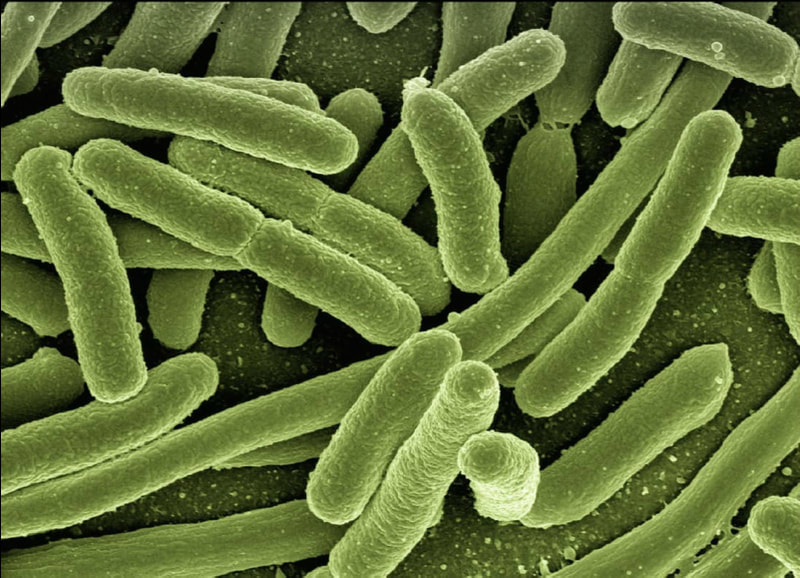Lack of Sleep Increases Risk of Cardiovascular Disease
In an increasingly industrialized world, sleep deprivation is rising at an alarming rate. Work, school, stress, electronics, certain medications, and sleeping disorders can all contribute to lack of sleep. Commonly known signs of a bad night’s sleep, unsurprisingly, include tiredness, moodiness, irritability, forgetfulness, and reduced cognitive abilities.
However, chronic lack of sleep is also associated with a variety of serious health problems. For instance, sleeping about 7 or less hours per night is linked to greater risk of cardiovascular disease, which can lead to a higher incidence of heart attack or stroke. A study from the University of Colorado at Boulder demonstrated that compared to adults who got enough sleep, sleep-deprived adults had 40-60% less amounts of certain microRNAs (miRNAs) like miR-125a, miR-126, and miR-146a. In this study, twenty-four adults ages 44-62 years old were divided into two equal groups, one with normal sleep duration (7-9 hours) and the other with short sleep duration (<7 hours). These adults were also sedentary, non-medicated non-smokers with no apparent diseases, minimizing the chance that genetic or lifestyle differences can influence the results. Their sleep habits were reported through a self-questionnaire, and their microRNA levels assessed from their blood samples. MicroRNAs are molecules that act like “brakes” on gene expression in cells, causing specific proteins to not be produced. In this case, these three microRNAs are crucial in maintaining vascular health. miR-125a and miR-126 are collectively involved in vasomotor activity, the ability of blood vessels to widen (vasodilate) or narrow (vasoconstrict). Specifically, miR-125a reduces excess vasoconstriction activity, whereas miR-126 stimulates vasodilation, thus promoting blood flow overall. miR-146a keeps in check the level of a protein that, if unregulated, results in increased inflammation of the blood vessels. All together, these miRNAs help reduce the risk of atherosclerosis, the narrowing of blood vessels, which ultimately contributes to chronic cardiovascular disease.
Consequently, because sleep is a potentially modifiable risk factor, taking steps to reduce sleep deprivation can significantly improve health. Beginning with practicing good sleep habits can fortunately come a long way. According to MayoClinic, it is recommended to sleep 7-8 hours a night (for teenagers and children, 9–10 hours) and maintain a regular sleep schedule so it is easier for the body to fall asleep and wake up at the same time each day. If one struggles to fall asleep, one can try a relaxing activity like reading or bathing before going to bed. Exercising (but not too close to bedtime) can also be helpful. An ideal sleeping environment has no bright lights, especially from computers, phones, or TVs which are too stimulative on the brain, and maintains a cool temperature between 60 and 67°F. If necessary, shades, earplugs, fans, or other devices may be used to create a distraction-free and comfortable sleep environment. Additionally, it is preferable to avoid alcohol, smoking, or caffeine because they contain chemicals that are sleep-disruptive; eating heavy meals a few hours before bedtime can also disrupt sleep. It is suggested to not nap excessively in the daytime unless one works actively at night.
However, chronic lack of sleep is also associated with a variety of serious health problems. For instance, sleeping about 7 or less hours per night is linked to greater risk of cardiovascular disease, which can lead to a higher incidence of heart attack or stroke. A study from the University of Colorado at Boulder demonstrated that compared to adults who got enough sleep, sleep-deprived adults had 40-60% less amounts of certain microRNAs (miRNAs) like miR-125a, miR-126, and miR-146a. In this study, twenty-four adults ages 44-62 years old were divided into two equal groups, one with normal sleep duration (7-9 hours) and the other with short sleep duration (<7 hours). These adults were also sedentary, non-medicated non-smokers with no apparent diseases, minimizing the chance that genetic or lifestyle differences can influence the results. Their sleep habits were reported through a self-questionnaire, and their microRNA levels assessed from their blood samples. MicroRNAs are molecules that act like “brakes” on gene expression in cells, causing specific proteins to not be produced. In this case, these three microRNAs are crucial in maintaining vascular health. miR-125a and miR-126 are collectively involved in vasomotor activity, the ability of blood vessels to widen (vasodilate) or narrow (vasoconstrict). Specifically, miR-125a reduces excess vasoconstriction activity, whereas miR-126 stimulates vasodilation, thus promoting blood flow overall. miR-146a keeps in check the level of a protein that, if unregulated, results in increased inflammation of the blood vessels. All together, these miRNAs help reduce the risk of atherosclerosis, the narrowing of blood vessels, which ultimately contributes to chronic cardiovascular disease.
Consequently, because sleep is a potentially modifiable risk factor, taking steps to reduce sleep deprivation can significantly improve health. Beginning with practicing good sleep habits can fortunately come a long way. According to MayoClinic, it is recommended to sleep 7-8 hours a night (for teenagers and children, 9–10 hours) and maintain a regular sleep schedule so it is easier for the body to fall asleep and wake up at the same time each day. If one struggles to fall asleep, one can try a relaxing activity like reading or bathing before going to bed. Exercising (but not too close to bedtime) can also be helpful. An ideal sleeping environment has no bright lights, especially from computers, phones, or TVs which are too stimulative on the brain, and maintains a cool temperature between 60 and 67°F. If necessary, shades, earplugs, fans, or other devices may be used to create a distraction-free and comfortable sleep environment. Additionally, it is preferable to avoid alcohol, smoking, or caffeine because they contain chemicals that are sleep-disruptive; eating heavy meals a few hours before bedtime can also disrupt sleep. It is suggested to not nap excessively in the daytime unless one works actively at night.
Image Source: Ivan Oboleninov
If sleeping issues still persist, it may be in a person’s best interest to consult with their doctor, who can look for possible patterns or sleeping disorders to help better manage their sleep. Conversely, physicians should also begin asking and considering their patients’ sleep habits to have a better measure of their health. In addition, if lack of sleep is due to busy shift work, it is advisable to arrange schedules in a way that permits adequate time for quality sleep. Or, if one has newborns, following these tips may be beneficial.
Unfortunately in modern society, sleep is being sacrificed to meet the greater demand for work, recreation, or academics. Furthermore, lack of sleep is sometimes erroneously prized as a factor to success, whereas regular or longer hours of sleep is stigmatized as “lazy.” However, health is an important priority that should not be thrown away; it is essential to general well-being and productivity. Good health begins with a good night’s sleep.
Unfortunately in modern society, sleep is being sacrificed to meet the greater demand for work, recreation, or academics. Furthermore, lack of sleep is sometimes erroneously prized as a factor to success, whereas regular or longer hours of sleep is stigmatized as “lazy.” However, health is an important priority that should not be thrown away; it is essential to general well-being and productivity. Good health begins with a good night’s sleep.
Featured Image Source: somethingholden
RELATED ARTICLES
|
Vertical Divider
|
Vertical Divider
|
Vertical Divider
|






